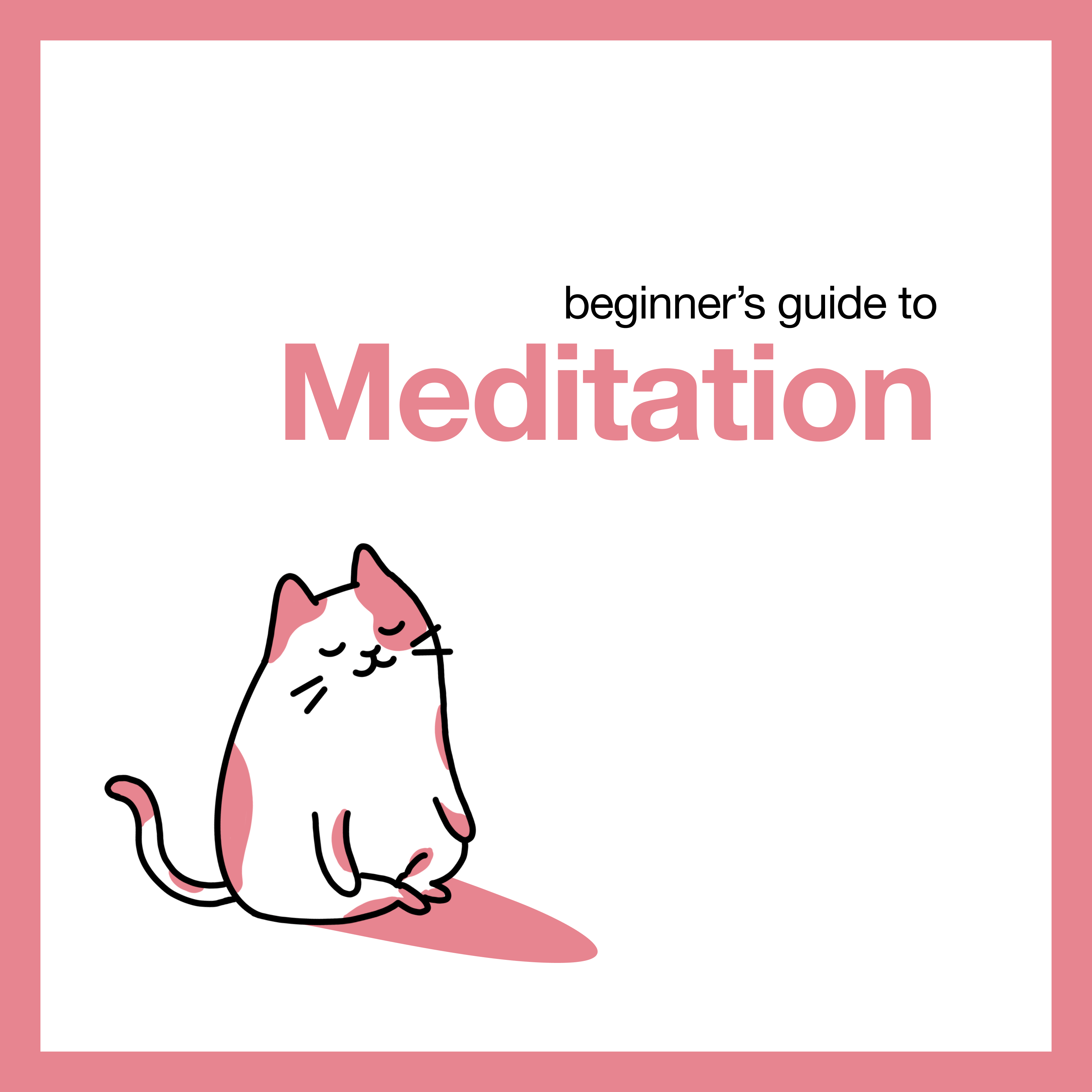It's easy to get overwhelmed when your to-dos start piling on. To-do lists are a tangible way of organizing and decluttering your mind. Meditation extends that calm and clarity inwards, promoting a holistic approach to mindfulness and mental health. If you find yourself constantly stressed or easily distracted, you may want to give meditation a shot.
One of the best parts of mindfulness meditation is that it's accessible, requiring nothing more than yourself and a quiet space. That's why we've put together this beginner's guide starting to your meditation practice.
Basic Meditation Steps
First, let's do away with our preconceived notions about the practice. Forget the incense and sound baths (although these can be great enhancements), we want to focus on basic meditation and meditation techniques.
1. Start by finding a quiet place to sit, one where distractions aren't likely to arise. You can sit on the floor cross-legged or upright in a chair with your feet planted on the ground. You can assume any number of meditation postures, just make sure you'll be able to sit comfortably for the duration of your practice.
2. Set a duration: It's recommended that first-time meditators start with shorter durations, a 5 to 10-minute session should suffice. You can lengthen meditation sessions as you build your confidence. Consistency is more important than duration when you're just starting out.
3. Meditate: close your eyes, take inventory of how your body feels and the different physical sensations you're experiencing, focus on your breathing...and that's it! Really, that's all there is to it. When your mind wanders, don't get discouraged! Set aside any judgement and simply make a mental note of what you were thinking about. Then, bring your focus back to your breath. You will find your mind wandering at times. That's expected and it's okay. Our ability to stay focused on the present moment is what we are building up. As you practice, the periods between focus and distraction will get longer.
4. Rinse and repeat. Habits aren't built on the fly. Be clear about when, how long, and how often you'll be meditating. Mornings are a popular time to meditate but anything that fits into your schedule routinely will work, as long as you can show up in the right headspace. Avoid scheduling times where you'll feel rushed. It's also important to be clear on why you're meditating. Knowing what you want to get out of it will help you be more intentional about building a regular meditation practice. Schedule a recurring task in TeuxDeux and enable daily digest to get daily reminders!
As you're getting started, you may find it helpful to find a meditation teacher or class. Our friends at Tap In host daily 10-minute guided meditations, if you need some extra encouragement.

Benefits of Meditation
Meditation is about focusing intently on the present moment, but the overall intent is to promote mindfulness and inner peace through all parts of our lives. The benefits of meditation can be observed in other aspects of your life, not just in the midst of meditation.
Reduces Stress
Research has shown that mindfulness practice can reduce some of the inflammatory responses caused by stress and improve symptoms of stress-related conditions like irritable bowel syndrome and post-traumatic stress disorder.
Managing Anxiety
Studies have repeatedly shown that meditation helps with anxiety. One study found that 8 weeks of mindfulness meditation helped to reduce anxiety symptoms among people with generalized anxiety disorder, improved stress coping, and increased the number of positive self-statements among participants.
Improve Focus
Meditation can improve focus and lengthen your attention span. You'll experience improved attention and accuracy. Meditating for just 13 minutes daily can enhance attention and memory after just 8 weeks!
Promote Self-Awareness and Emotional Health
As you gain a greater awareness of your thoughts, you'll be able to recognize harmful thought patterns and start to build more constructive ones. This isn't just a spiritual exercise either! Several studies have suggested that meditation can help reduce symptoms of depression by decreasing levels of inflammatory chemicals known as cytokines, which affect mood.
Meditation and its benefits are widely researched-and for good reason. We've all experienced stress and burnout at some point! Learning to manage it is a life-long skill that will pay dividends. We hope this beginner's guide will help you get started with your meditation practice.
